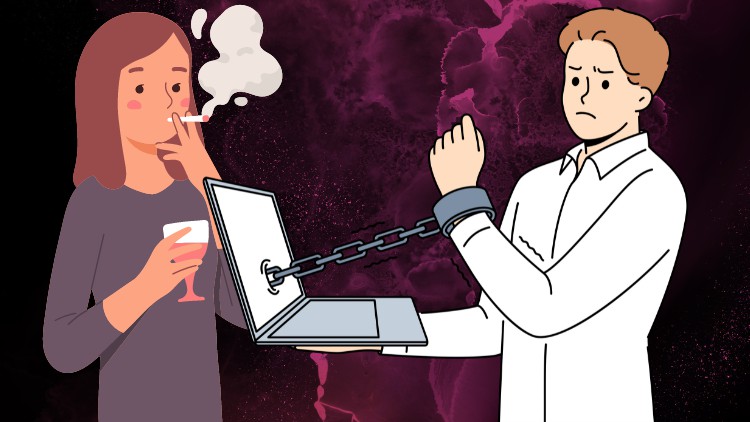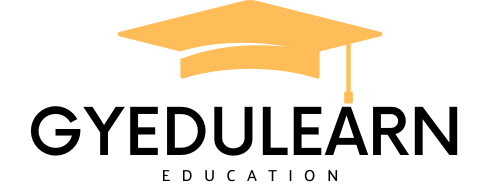Addiction Coaching Certificate (Beginner to Intermediate)
- Description
- Curriculum
- FAQ
- Reviews

Addiction Coaching Certificate
Embark on an unparalleled journey with our Professional Addiction & Habits Coach Practitioner course (Beginner to Intermediate), complemented by the Professional Addiction & Habits Coach Practitioner Certificate. Immerse yourself in a seamlessly crafted, scientifically based curriculum designed to empower you to effect behavioral change, dismantle counterproductive tendencies, and confront daily stressors. Gain expertise in proven methods to address addictions related to Drugs, Alcohol, Social Media, Gambling, Pornography and Sex.
Who is this course for?
This course is tailored for individuals who have a genuine passion for helping others and a particular interest in assisting those striving to transform unhealthy behaviors, cultivate better habits, and break free from addictions. It serves as a holistic and transformative coaching experience for habits creation and addiction recovery.
Key Highlights:
- Learn Effective Methods to Expand within the field of Addictions
- Featured insights from renowned advisors and experts, including Dr. Joe Dispenza, Dr. Anna Lembke, Dr. Andrew Hubermann, James Clear, Tony Robbins, Jud Brewer, Kristi DePaul, and many others.
Course Overview:
Designed for coaches, therapists, and anyone eager to support others in overcoming addictions, fostering positive behaviors, and enhancing emotional intelligence, this course stands out. Whether you’re entering the realm of addiction coaching for the first time or seeking to enhance existing skills with a neuroscience-psychology-based approach, our course offers a gateway to a highly-actionable and comprehensive coaching process.
Why Choose Our Course?
- Lay the foundation for a fulfilling career as an addiction recovery and habits formation practitioner.
- No singular method; empower yourself with a contemporary, science-based, and collaborative addiction practitioner methodology.
- Insights from leading experts ensure a well-rounded learning experience.
What You’ll Gain:
This course provides fundamental knowledge and insights, equipping you with the tools needed to thrive as a certified addiction coach. Join us in shaping a future where positive change and transformation become second nature. Enroll now and unlock the potential to make a lasting impact.
WARNING: If you are looking for a course that requires just a couple of clicks and is all done for you, then this course is NOT for you. This course involves work, including answering quizzes, completing assignments, readings, and watching many external videos. Just like everything worthwhile, it takes effort! Additionally, this course is not suitable for those seeking information about the use of addiction medications, etc.
-
12Addictive Behaviour
-
13Decoding Addiction
-
14Exploring Substance-Related Dependency – Unveiling the Mechanisms
-
15Exploring the Impact of Drugs on the Body
-
16Tolerance
-
17Understanding Adaptation and How Drugs Shape Our Thinking
-
18Navigating the Recovery Journey: Understanding Withdrawal and Beyond
-
19Unlocking the Biology of Substance Dependence: A Journey to Transformation
-
20Empowering Change: A Personalized Journey to Alcohol Awareness and Wellness
-
21Navigating the Path to Freedom: Decoding Withdrawal Symptoms and Their Managemen
-
22Reprogramming Your Mind to Break Addiction with Dr. Joe Dispenza
In this chapter, we delve into the profound insights and transformative practices shared by Dr. Joe Dispenza on the topic of breaking addiction and reprogramming the mind. Addiction is a pervasive issue in today's society, affecting individuals in various forms, from substances like drugs and alcohol to behaviors such as compulsive phone use, social media addiction, and more. Dr. Joe Dispenza, a medical doctor with over two decades of experience, offers a unique perspective on addiction and its underlying causes.
As we explore Dr. Joe Dispenza's video titled "How To REPROGRAM Your Mind To Break ADDICTION," we aim to gain a deeper understanding of addiction, its drivers, and most importantly, the strategies and practices that can help individuals break free from its grip. Addiction, as Dr. Joe explains, often stems from underlying emotional imbalances and unresolved traumas. By addressing these emotional states and learning to regulate them, we can significantly impact our journey towards recovery and transformation.
Dr. Joe Dispenza introduces the concept that our emotional states are closely tied to our addiction patterns. Traumatic experiences, emotional shocks, and significant life events can alter our emotional landscape, leading to the formation of long-term memories associated with specific emotions. These emotional states, when triggered or remembered, lead to cravings and addictive behaviors. Dr. Joe's approach revolves around the idea of self-regulation—learning to consciously shift our emotional states from negativity to positivity.
One of the key takeaways from Dr. Joe's teachings is the importance of practicing elevated emotions, such as gratitude, appreciation, kindness, and love. By consistently practicing these elevated emotional states, individuals can rewire their brains and bodies, reducing their dependence on external substances or behaviors to feel better. This reprogramming process involves creating coherence between the heart and the brain, which, as Dr. Joe explains, can lead to profound changes in our biology, gene expression, and overall well-being.
Morning routines play a significant role in this transformational journey, as they provide a prime opportunity to set the tone for the day. Dr. Joe emphasizes the importance of beginning the day with intention, self-regulation, and mental rehearsal. By consciously choosing how we want to feel and behave throughout the day, we can break free from the automatic, habitual responses that often lead to addiction and emotional imbalances.
In this chapter, we'll explore the practical steps and techniques Dr. Joe Dispenza recommends to reprogram the mind, break addiction patterns, and embark on a path of profound personal transformation. By the end of this chapter, you'll have a deeper understanding of the power of your emotions, thoughts, and intentions in shaping your reality and overcoming addiction.
Please watch the video 'How To REPROGRAM Your Mind To Break ANY ADDICTION In 9 Days! | Dr. Joe Dispenza' and take as many written notes as possible. As you may know, when you write, you're sending signals to your brain, which helps you retain information better than passive listening alone. Make sure to jot down any potential questions that arise, and we hope to address them throughout the course in various lessons.
While you're listening, please write down three questions that should always remain visible in front of you:
How can I personally and/or professionally apply what I've learned?
Who is counting on me to actually apply what I've learned?
Why should or must I apply what I've learned?
These questions are meant to accompany you throughout the entire course. Feel free to stick them on your laptop or place them in front of you on the wall as a reminder.
-
23Mindful Mastery Quiz
This quiz tests your knowledge of Dr. Joe Dispenza's teachings.
-
24The Power of Stories in Addiction Coaching
-
25Unveiling the Power of Habit Transformation
Welcome to this chapter of our 'Professional Addiction & Habits Coach Certification' course! Get ready to embark on an exciting journey into the world of habit formation. Today, we're diving deep into the question: 'What Does It Really Take to Build a New Habit?'
In this chapter, we'll be guided by an insightful article from Kristi DePaul as we uncover the mysteries of habit transformation. Did you know that nearly half of our daily actions are driven by habits? From maintaining a healthy diet to practicing mindfulness, our habits shape our lives in powerful ways.
But how can you build new habits effectively? Forget the 'quick fixes' you find online. Instead, we'll explore the neuroscience behind habit formation, emphasizing the importance of gradual progress and unwavering commitment.
Before we jump into the article, let's distinguish between routines and habits. Habits are actions performed with little or no thought, while routines involve intentionally repeated behaviors. Our goal for this chapter is to turn routines into habits, a journey that demands patience, self-discipline, and dedication.
Throughout this chapter, we'll show you how to identify and overcome common roadblocks that may have thwarted your previous attempts to establish routines. By addressing these challenges head-on, you'll set yourself up for success.
We'll also introduce the concept of 'nudges'—practical techniques to kickstart your new routine effectively. Whether it's crafting a schedule, embracing microhabits, or practicing temptation bundling, these strategies will empower you to make meaningful progress.
As you embark on this transformational journey, remember to be kind to yourself. Change takes time, and there will be highs and lows along the way. However, armed with the knowledge and strategies from this course, you're well-prepared for the challenges ahead.
Join us as we delve into Kristi DePaul's article, uncover the secrets of building new habits, and gain insights that can not only transform your life but also empower you to guide others as a coach or therapist.
-
26What Does It Reallly Take to Build a New Habit?
In this engaging lesson, we'll delve into the art and science of habit formation. We'll explore the insights from Kristi DePaul's article, "What Does It Really Take to Build a New Habit?" which discusses the key principles of creating lasting habits. Participants will also put their knowledge to the test with our "Habit Formation Mastery Quiz."
What Participants Will Learn: After completing this lesson and quiz, participants will:
Understand the fundamental difference between routines and habits, and why routines are the foundation of habit formation.
Recognize the significance of understanding the "why" behind a behavior and how it plays a crucial role in building new habits.
Discover the concept of temptation bundling and how it can be applied to make the process of adopting new habits more enjoyable and effective.
Gain insights into practical steps and nudges to initiate and maintain new routines that can ultimately transform into habits.
Be equipped with actionable strategies and knowledge to embark on their journey of building and sustaining positive habits for personal growth and self-improvement.
By the end of this lesson, participants will have a deeper understanding of the psychology of habit formation and the tools to create meaningful, lasting change in their lives.
Please read the article provided in the materials. The link in the accompanying materials will take you to https://hbr.org/. Generally, the articles are free to access. However, readers can only access a limited number of articles. If you reach this limit, you can continue reading using an Incognito browser or a different browser. Alternatively, you can register with HBR to have unlimited access to the articles (registration is optional). The articles we share with you are freely available, and you can definitely read them using an Incognito browser.
While you're reading, please write down three questions that should always remain visible in front of you:
How can I personally and/or professionally apply what I've learned?
Who is counting on me to actually apply what I've learned?
Why should or must I apply what I've learned?
These questions are meant to accompany you throughout the entire course. Feel free to stick them on your laptop or place them in front of you on the wall as a reminder.
-
27Habit Formation Mastery Quiz
Test your knowledge on habit formation with our "Habit Formation Mastery Quiz." This quiz is based on the insights from Kristi DePaul's article, "What Does It Really Take to Build a New Habit?" Explore the key concepts discussed in the article and see how well you understand the science and psychology behind habit formation. Whether you're a beginner looking to build better habits or a habit enthusiast seeking to deepen your understanding, this quiz will challenge your insights and provide valuable takeaways for your personal growth journey. Let's get started and unlock the secrets to building lasting habits!
-
28Habit Formation Insight Questions
-
29How to Break Up with Your Bad Habits
-
30Breaking Habits and Mindfulness Quiz
Test your knowledge on breaking habits and the power of mindfulness with this interactive quiz. See how well you understand the concepts discussed in the article 'How to Break Up with Your Bad Habits' and discover key insights into habit formation and transformation. Get ready to challenge your understanding and enhance your ability to break free from unwanted habits.
-
31Design Your Habit Transformation Plan
-
32The Power of Addiction and The Addiction of Power
-
33Understanding Addiction and the Pursuit of Power
This quiz is designed to test your comprehension of Dr. Gabor Maté's insightful talk on addiction and the addiction to power. Explore the key themes presented by Dr. Maté, his insights into the root causes of addiction, and the impact of childhood experiences on addiction vulnerability. Test your knowledge and gain a deeper understanding of these complex topics.
-
37Why We Do What We Do | Tony Robbins Podcast
Welcome to Lesson 5 of our course, where we explore the intriguing realm of human needs through the wisdom of Tony Robbins. According to Tony's International Research Team, anything that fulfills at least three needs at a high level becomes an addiction, be it positive, negative, or neutral.
Today, we invite you to engage with two enlightening resources. Firstly, we'll immerse ourselves in the thought-provoking podcast titled "The Six Human Needs" from the Tony Robbins Podcast series. This podcast embarks on a journey to uncover the core drivers of human behavior, revealing the underlying reasons behind our actions.
As you absorb the podcast's insights, focus on the six fundamental human needs it unveils: certainty, uncertainty/variety, significance, connection/love, growth, and contribution. Consider how these needs shape our emotions, guide our decisions, and steer our actions.
Following the podcast, we will transition to a powerful video, "Stop Your Addiction - Most Incredible Advice" by Tony Robbins. This video imparts valuable wisdom on breaking addictive patterns and instigating positive transformation. Tony narrates a compelling story and introduces a three-step process for initiating change:
Leverage: Discover how to identify and utilize the pain associated with addiction or undesirable behaviors.
Interrupt the Pattern: Learn how to disrupt the existing behavior pattern, creating a moment ripe for transformation.
Create an Empowering Alternative: Uncover strategies to establish a new, empowering alternative behavior and reinforce it until it becomes a lasting habit.
By the end of this lesson, you will grasp the profound significance of these steps in catalyzing personal change, applicable to various facets of your life. After engaging with both the podcast and video, we'll provide a set of questions to help you reflect upon and internalize these profound concepts. This exploration will deepen your comprehension of human behavior, fostering more meaningful interactions and personal growth.
Now, let's embark on this enlightening journey, first with the podcast and then the video, to uncover the secrets behind human needs and the keys to breaking free from addictive patterns.
Information
The reflective questions, quizzes, and assignments are designed to reinforce our commitment to active engagement. To derive the utmost benefit, it's extremely important that you not only watch the videos but also actively participate by answering reflection questions, completing quizzes, and making detailed notes.
Actively engaging with the content through note-taking will enhance your understanding and retention.
While watching the videos and reading the provided articles, please consider the following three questions:
How can I integrate the insights from this video/article into my personal or professional life?
Who in my life is relying on me to apply what I've learned about addiction and recovery?
Why is it crucial for me to apply the knowledge and perspectives shared in this video or article?
These questions will serve as ongoing prompts to guide your learning journey throughout the course. You may find it helpful to display them prominently during your studies as a constant reminder.
Remember:
As you embark on this transformational journey, remember to be kind to yourself. Change takes time, and there will be highs and lows along the way. However, armed with the knowledge and strategies from this course, you're well-prepared for the challenges ahead.
-
38Key Learnings about the Six Human Needs
-
39Behavior Change Mastery Challenge
Dive into the world of behavior change and addiction recovery with our "Behavior Change Mastery Challenge" quiz, inspired by Tony Robbins' insightful video, "Stop Your Addiction - Most Incredible Advice." Test your understanding of the principles discussed in the video and discover the keys to transforming addictive behavior into lasting positive change. Answer multiple-choice questions and complete tasks that will empower you with the knowledge and tools to make lasting transformations in your life.
-
40Task for Participants
Task for Participants:
Based on what you've learned from the videos, your task is to identify a behavior, habit, or addiction that you would like to change or help someone else change. It could be related to personal habits, work, relationships, or any area of life. Then, follow these steps:
1. Put Yourself in a Peak State:
Begin by spending some time putting yourself in a positive, motivated, and confident state. You can use Tony Robbins' techniques, such as Priming (you can find the link provided in the materials), or mindfulness exercises inspired by JUD Brewer to elevate your emotional state. This emotional state will be the foundation for your change efforts.
2. Find Your Passion:
Explore why you want to make this change. What excites you about it? What drives you? What would you love to achieve by making this change? Be specific about your reasons and the positive outcomes you desire. Use mindfulness practices to deeply connect with your motivations and goals.
3. Make a Decision:
Make a firm and unwavering decision to change this behavior or habit. Commit yourself to it mentally and emotionally. Use the emotional state you've created to reinforce your commitment. Understand that this decision is not just a conscious choice but also involves the rewiring of your brain, as explained by JUD Brewer.
4. Take Immediate Massive Action:
What is one significant action you can take immediately to move toward this change? It should be something substantial and impactful. It could involve research, setting a clear goal, reaching out for support, or initiating a specific action related to the change. Tony Robbins' principle of taking massive action aligns with this step.
5. Evaluate and Adjust:
As you take action, regularly assess your progress. Is your chosen strategy working? If it's working, reinforce it. If not, adjust your approach and try something new. Use your sensory acuity to notice what's effective and what's not. Also, practice mindfulness to observe your cravings, triggers, and emotional responses, as suggested by JUD Brewer in the section before.
Remember, momentum is crucial for lasting change. By following these steps and continuously adjusting your approach, you can effectively work towards overcoming addiction, changing habits, or helping others do the same.
-
41James Clear in his article 'How To Start New Habits That Actually Stick
Welcome to the next chapter of our journey towards understanding the power of habits and how they shape our lives. In the previous chapter, we explored how daily and weekly habits play a crucial role in maintaining focus, well-being, and stability during challenging times. Now, we're diving even deeper into the science of habits. In this chapter, we'll examine the framework presented by James Clear in his article 'How To Start New Habits That Actually Stick.' Clear's insights provide a profound understanding of how habits work, and his ideas can be transformative for anyone looking to create positive changes in their life. Let's embark on this journey of discovery and learn how to harness the science of habits to our advantage.
-
42Habit Change Challenge











